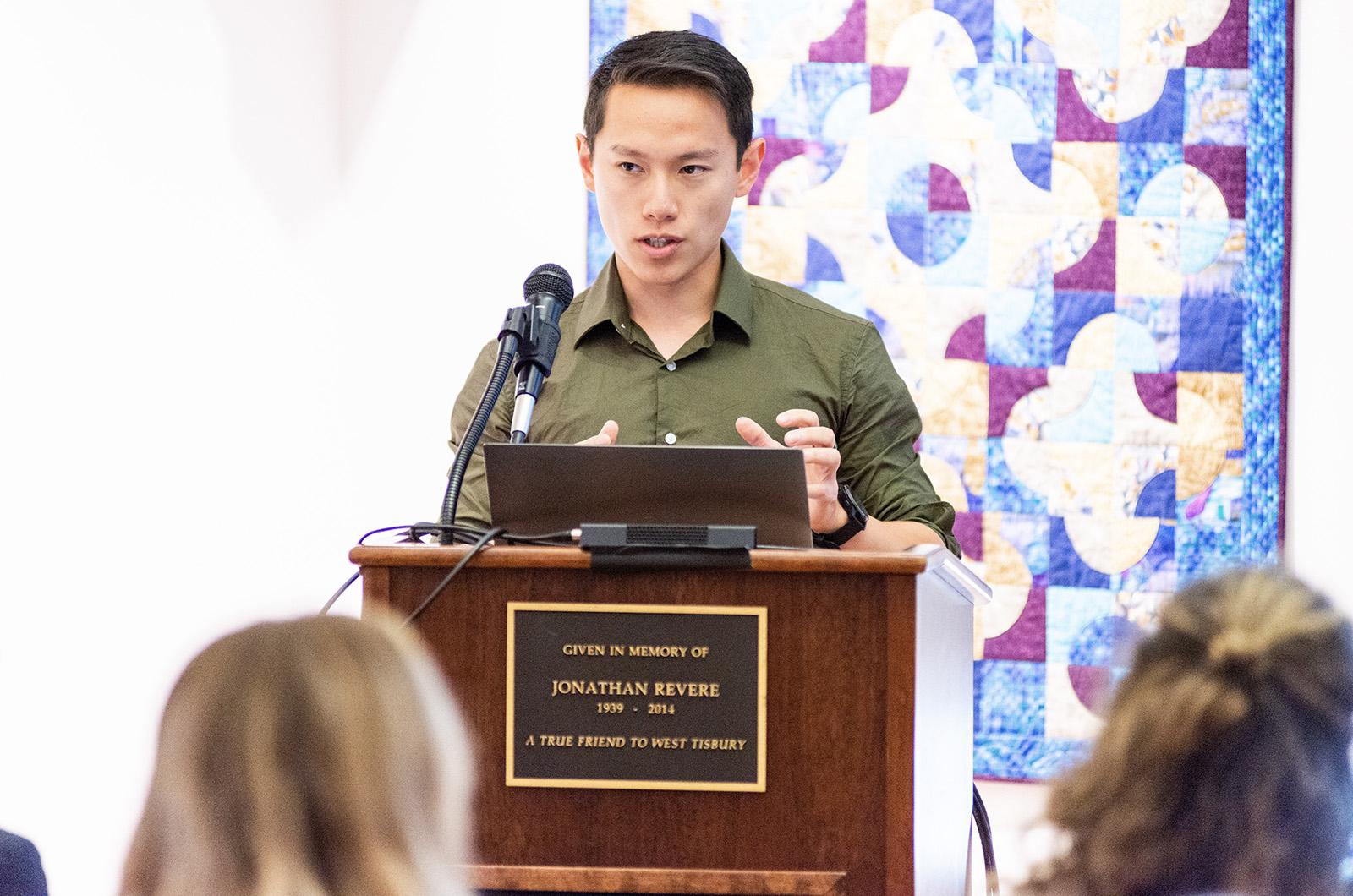Better communication, more collaboration and new training programs are all needed to improve services for elderly Islanders who are homebound, a new report from the Rural Scholars has found.
And the critical shortage of affordable year-round housing on the Island is exacerbating insufficient services, the scholars said. A hundred per cent of the people interviewed for the study identified the housing and workforce shortages as a major barrier to improving home care.
Results of the 2022 study were presented last Thursday at the West Tisbury Library. Eight nursing and medical school students from the University of Massachusetts Chan Medical School led this year’s study, which partnered with Healthy Aging MV to research existing services for homebound seniors. The Rural Scholars program dates to 2005 and is coordinated by the Dukes County Health Council; past studies have focused on a wide array of topics, including homelessness, food equity and Lyme disease. The housing issue has been raised in previous studies conducted by the rural scholars.
This year, the medical students interviewed 73 people in groups of two to three and engaged with 44 Island organizations, advocacy groups and community stakeholders. Behavioral health, integrated health and social support were all areas of study.
The study took note of the services currently available for the estimated 7,500 seniors through the councils on aging, Healthy Aging MV, Martha’s Vineyard Community Services, Martha’s Vineyard Center for Living and other nonprofits.
The scholars focused attention on how existing resources could be improved or expanded on, including the need for increased communications among service organizations. Recommendations include:
• Creating a widely available resource book that would be published quarterly.
• Creating a home health visit system through the Martha’s Vineyard Hospital.
• Expanding services for people with dementia and the caregivers who support dementia patients.
• Creating a system of senior advocates.
Some recommendations called for new actions, including creating access to nursing and medical training as a means of creating employment and increasing the number of care workers. Other new ideas centered around volunteerism.
One recommendation that sparked particular interest was a Senior to Senior Enrichment Program, where seniors at the Martha’s Vineyard Regional High School would pair with senior citizens across the Island for socializing, home visits, household and technology assistance and cross-generational learning.
The high school does not have a service requirement, but if one is created, the proposed buddy system could fit with that, the scholars suggested.
Services for Islanders with disabilities was also a topic for research. Recommendations included scaling VTA bus fares for seniors with disabilities, and creating more employment opportunities for people with disabilities. Chilmark Chocolates was cited as a model for employment programs.
The medical students expressed gratitude for their experiences on the Vineyard, noting the surprises they encountered and many kindnesses offered to them. And while it’s too soon for any to know if gerontology will be a specialty to pursue, three students said they hope to be general practitioners, which will include care for elderly patients. A few said they hope to return to the Island to follow up on the work begun this year.
The Rural Scholars’ 2022 report with recommendations will be available on the Healthy Aging MV and Dukes County Health Council websites. MVTV is planning to air the Nov. 3 presentation at a future time.






Comments (2)
Comments
Comment policy »